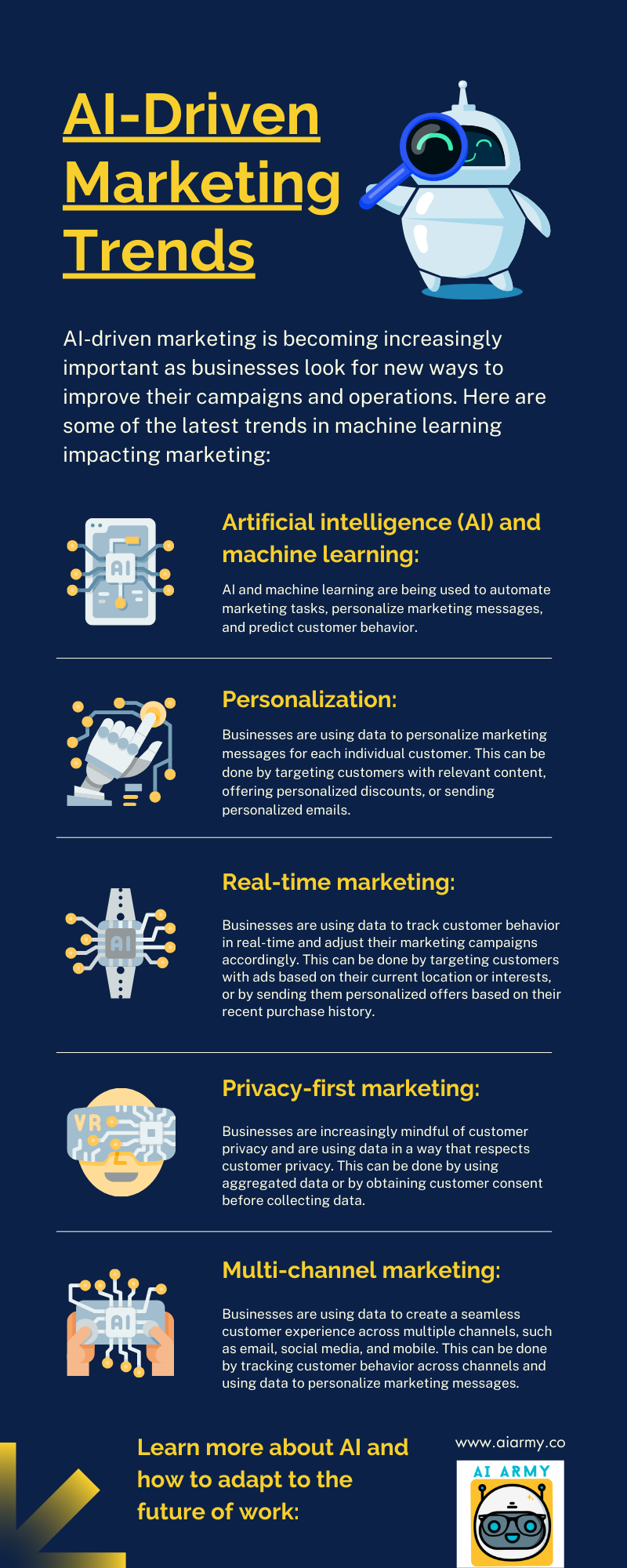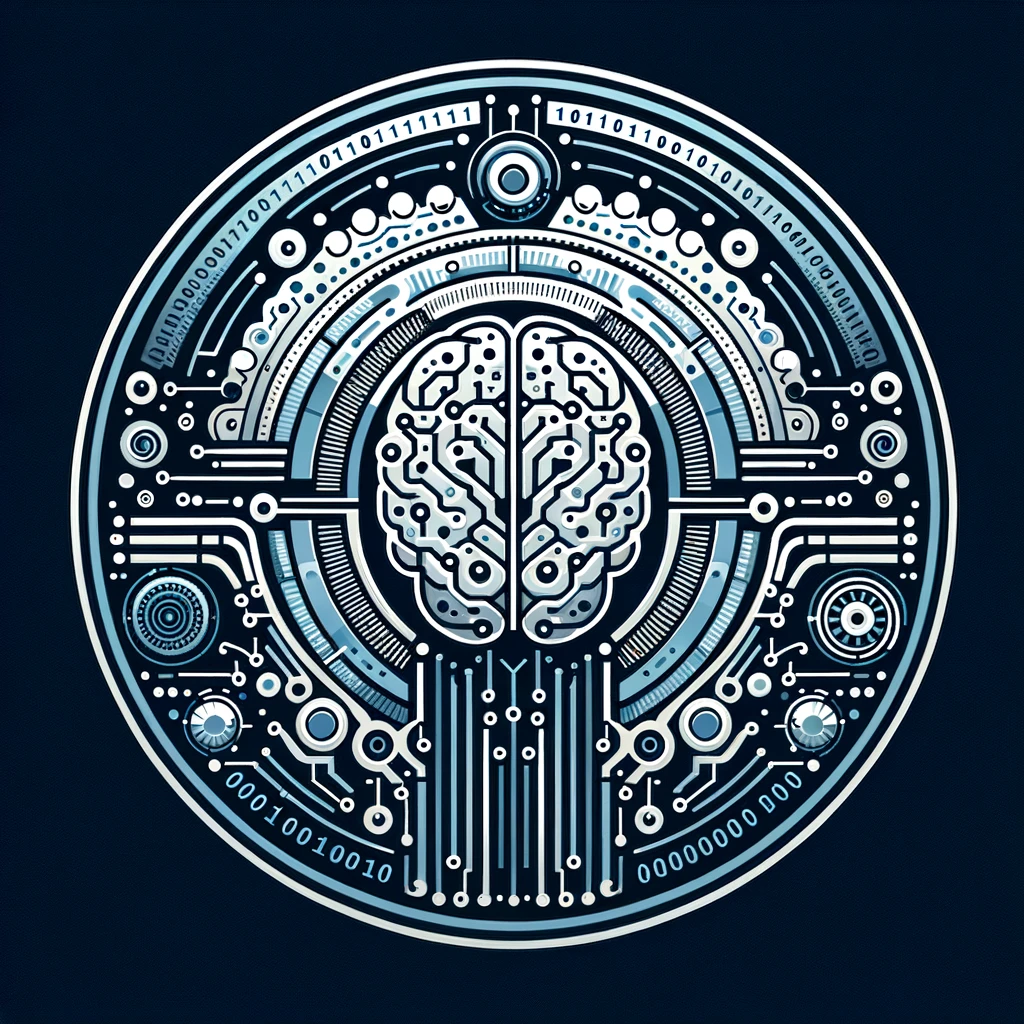Discover the impact of Generative AI on the future of startups and how it is revolutionizing the business landscape.
Understanding the AI Revolution
With the rapid advancements in machine learning and technology, the world is witnessing an AI revolution that is reshaping the business landscape, and in particular startups. AI, or Artificial Intelligence, refers to the development of computer systems that can perform tasks that typically require human intelligence.
In terms of Generative AI agents, like we saw with the release of ChatGPT and others, this can include tasks such as speech recognition, decision-making, problem-solving, and more. The current AI race is driven by the power of machine learning and deep learning algorithms that enable computers to learn from data and improve their performance over time continually.
AI has the potential to transform startups in many ways. Primarily by providing them with innovative solutions to solve problems quickly and by providing novel or totally new opportunities for growth. Startups can also leverage AI technology to automate processes, enhance customer experiences, and gain valuable insights from data. Understanding the AI revolution is crucial for startups to stay ahead of the competition and harness the full potential of AI-driven technologies.
Before we get to far ahead, let's look back to circa 2004:
When Facebook's internal motto "Move Fast and Break Things" circled the internet years ago, it made waves. It referred to a culture where turning ideas into executable code quickly was the priority. The motto also captured how entrepreneurs in silicon valley often view disruption, believing that more is always better and if you aren't moving fast why even bother. At that time, they were truly moving fast and breaking records for user growth on their way up. They started on the backs and brows of people...engineers, coders, developers, and the like. They were writing their own code, building things and breaking things, and learning along the way. That was the way of things in the world of software.
Back to the Future... it's 2023.
CoPilot and Generative AI agents can assist with programming languages, debugging, writing and/or referencing code in real-time. Github reports that developers who use GitHub Copilot complete tasks 2X faster compared to benchmarks. According to their survey 88% of respondents believe the tool helps them be more productive and complete work faster.
Imagine how much faster things can move when our software helps us write itself. Now imagine how much faster we can break things at this velocity...the rate of change is going to be exponentially greater from here. Companies will rise and fall in waves of change along the way. Adapting to AI is not optional; it's essential, if you want to remain competitive in the years to come.
Here is an example summarizing how quick it is to launch something new with Generative AI technology today:
OpenAI launched the ability to customize GPT Agents for specialized tasks. To test it, I set up a few agents.
1. ScriptKittyGPT: a coding agent
2. NutriGuide: A weekly meal planning GPT
3. Sophia a research assistant
4.Tomi an image transformation agent
For more advanced agents you can use your data for training/fine tuning or connect with their APIs to enable real-time integrations for applications. They have not developed a public marketplace for these new custom GPTs yet, but according to their developer forums they will be.
In the meantime, people are looking to find all the handy new GPT agents they can use. Until they have launched their marketplace to make things more easy to discover, I set one up that helps you find other custom GPT agents made by the community. Check out GPTExplorer to find new community built GPTs to customize your ChatGPT experience.
Screenshot of a Custom GPT: ScriptKittyGPT: Your friendly cat-themed coding agent.
You can ask coding questions, get help clawing through code, learn the cat's way of web design and more. When things seem too hard she might share a cute kitten image or puns to brighten your day during your chat, anything is paws-able. 
Generative AI agents are force-multipliers for startups and entrepreneurs in particular -- speed to start, speed to code, speed to iterate, and speed to launch could all be significantly reduced using these technologies. It's no wonder, that every company seems to suddenly be an AI company or interested in using AI.
There are hundreds of new AI companies and new AI integrations launching at record speed. We've seen many move to do wrappers around existing technology like ChatGPT and others. While strategies like this helped them move quickly; many of those early adopters saw there add-on capabilities quickly become new native features added by these foundation models in later releases.
The real winners so far, are those who had a unique product offering to begin with, those with a large customer base of their own, and/or with proprietary data. For example Canva, and their new AI backed Magic Studio is just that. It's a magical experience to get creative designs on demand by simply asking the AI to generate it with a quick prompt. Then you can edit or iterate the design until you are happy with the final result. This includes all types of design assets you can imagine from social media posts to presentations. This is just one example. There are literally hundreds of new Generative AI companies based on content generation, editing and design.
Another example is generative AI for copywriting. The outline for this blog post was developed by HubSpot's Assistant AI based on my title. Their AI assistant really helps me blaze through writing. I know it will consider my SEO goals and the title and generate a quick outline for my headings. I can take those headings and easily elaborate on it to complete the post I had in mind with the confidence it's going to support my content strategy. Another magical experience in the Age of Generative AI. My HubSpot CRM is now powered by AI and is smart enough to help me work faster and make more intelligent decisions based on my database. It's a golden age.
The Role of AI as Leverage
AI is a tool I use to help lift some of my daily work load. I am constantly producing all types of content and digital assets. Generative AI is like a new superpower when I need research, mockups on demand, or if I am fighting to get the creative juices flowing. AI can help when I feel stuck and I can use that inspiration to keep going.
Beyond AI for content generation, it's a glorious future for those who truly understand the power of workflow automations and using multi-modal agents. The possibilities truly feel limitless for operations across the cloud. This is why I think Gen AI is a real goldmine. Really creative or technical people will be able to do amazing things with far less help from others thanks to AI.
A scrappy engineer could launch a startup without much of the traditional hassle getting off the ground and then more easily scale up once an MVP is established. On the other hand, a really strategic entrepreneur could leverage AI as a way to augment skills and fill knowledge gaps to make better decisions without consulting an expert or hiring people until there is enough real demand or revenue to support growing their team.
AI above all is a leveraging agent -- all domains of specialized knowledge are becoming training material for AI models. Anyone can learn anything in the age of AI. This I believe to be absolutely true and it's one of the core ideas behind the AI Army community. I have seen only a fraction of what is possible and was blown away. I know this technology will continue to shift the way we work and I want to help others adapt to the future of work.
A new challenge for startups lies in building something unique when everyone has the same access to AI to help them innovate now. How do you use AI as leverage when AI is so accessible to everyone now? This is why the human talent and creativity in your team will matter most. Learning to effectively leverage these technologies and identify the real risks and opportunities for your business will be vital. You'll need people capable of helping you navigate those waters.
Today, in the digital economy, data is the real currency. Many companies are entirely modelled around data. Yet, there's still an immeasurable amount of valuable data yet to be stored, digitized, shared, discovered, analyzed, or created. Companies and individuals can also share open-source datasets or foundation models for others to use. The future is going to be fueled by open-source and breaking down long existing silos.
I think we could experience a new age renaissance with the assistance of Generative AI agents and the shift towards open-source and more knowledge sharing in general. We live in the age of information, but we've been drowning in noise. I think AI is a fresh way to help people engage with knowledge and provide different user experiences that are meaningful to them when applied responsibly. That will be the key to providing something sustainable. Finding the right balance between user experience, user engagement, and user privacy.
All of this is food for thought as we continue our series exploring how Generative AI is shaping the future of work.
The Role of AI in Startups
AI can play a crucial role in startups by enabling them to streamline operations, improve efficiency, and drive innovation. Startups can use AI algorithms to automate repetitive tasks, reducing the need for manual work and allowing employees to focus on more strategic activities.AI-powered chatbots can enhance customer support by providing instant responses and personalized recommendations. Additionally, startups can leverage AI to analyze large volumes of data and extract valuable insights, enabling data-driven decision-making and predictive analytics or personalization at scale. Personalization and tailored experiences with the help of AI algorithms will continue to dominate our feeds online and generate user engagement. AI can help companies continue to find creative ways to break through the noise and deliver smooth and engaging customer experiences as they scale.
AI can empower startups to create innovative products and services. For example, startups can develop AI-based applications that enhance user experiences, optimize resource allocation, or identify new opportunities. I truly cannot state enough how much I encourage R&D and brainstorming sessions with key stakeholders in your team to start thinking about potential impact to your industry or organization. It's already getting harder to keep up with the rapid changes, don't avoid the hard talks now or you'll feel it later. Speed to market has never been more critical.
AI can also assist startups in improving cybersecurity measures and detecting potential threats, safeguarding their sensitive data and intellectual property, or monitoring for uptime/reliability. AI can assist with so many types of tasks today that the use cases are truly endless and worth exploring for any organization, startup or otherwise. AI could be used to help streamline recruitment and hiring processes, to analyze financial reporting, and other time-consuming processes. Overall, the role of AI in startups can be transformative, enabling them to disrupt traditional industries and move quickly if applied strategically.
Benefits of AI-Driven Startups
AI-driven startups can benefit in a variety of ways, allowing them to gain a competitive edge and achieve sustainable growth.
One of the key benefits of AI is its ability to automate processes, reducing costs and improving operational efficiency. By automating repetitive tasks, startups can optimize resource allocation, minimize errors, and increase productivity.
AI can bolster your sales or customer service teams. AI can help improve conversions, retention, and enhance customer experiences by providing personalized recommendations, predictive analytics, and real-time support through chatbots or other virtual AI agent experiences.
Another significant benefit of AI-driven startups is the ability to leverage data-driven insights for strategic decision-making. AI algorithms can analyze large volumes of data and extract patterns, trends, and valuable insights that can inform business strategies and improve performance. Startups can identify market trends, customer preferences, and potential risks, enabling them to make informed decisions and adapt to changing market conditions.
Finally, AI-driven startups have the potential to disrupt industries and create innovative solutions. By leveraging AI technology, startups can develop products and services that address new or unmet needs. This allows startups to continue to find ways to differentiate themselves from current competitors.
Challenges and Considerations for AI Startups
While AI offers tremendous opportunities for startups, there are also several challenges and considerations that need to be addressed.
One of the primary challenges is the availability of data. AI algorithms require large volumes of high-quality data to train and improve their performance. Startups may face difficulties in obtaining relevant data, especially in industries where data collection and privacy regulations are stringent. Using an open-source foundation model and fine-tuning it with your own data will be the most plausible path for many.
Another challenge is the ethical considerations surrounding AI. Startups need to ensure that their AI systems are unbiased, transparent, and accountable. They must address concerns related to privacy, security, and potential job displacement. Startups should also be mindful of the potential risks associated with AI, such as algorithmic biases, data breaches, and unintended consequences.
Additionally, AI startups need to consider the technical expertise required to develop and deploy AI systems. Hiring skilled AI professionals and investing in AI infrastructure can be costly for startups, especially in the early stages. Startups should carefully assess their AI capabilities and determine whether to build in-house expertise or collaborate with external AI service providers. Startups that cannot afford to sustain large pools of talented people yet, could supplement many areas of operations with the right people leveraging AI creatively.
AI startups should be prepared to navigate the regulatory landscape and comply with relevant laws and regulations governing AI technologies as well. They should stay updated with the legal and ethical frameworks surrounding AI to ensure responsible and compliant use of AI systems.
Addressing these challenges and considerations is crucial for AI startups to build trust, mitigate risks, and unlock the full potential of AI technologies.
Tips for Building a Successful AI Startup
Building a successful AI startup requires careful planning, strategic execution, and a deep understanding of AI technologies. Here are some tips to help startups thrive in the AI landscape:
1. Identify a clear and unique problem or need: Startups should identify a specific problem or need that can be addressed using AI technology. This will enable them to develop a focused solution that solves a real-world problem and offers value to customers.
2. Acquire as much relevant data as possible: Data is the fuel for AI algorithms. Startups should invest in data collection and ensure they have access to relevant and high-quality data. They can explore partnerships or collaborations to acquire the necessary data.
3. Build a strong & creative AI team: Hiring skilled AI professionals is essential for building and maintaining AI systems. Startups should assemble a team with expertise in machine learning, deep learning, data science, and software development. There are also options for outsourcing to agencies that specialize in AI application development if you don't have enough resources to hire in-house, you could seek consultants, or depending on the circumstances perhaps even partnerships to fill some gaps.
4. Prioritize simplified user experiences: AI-driven products and services should prioritize user experience and deliver value to customers. Startups should focus on creating intuitive interfaces, personalized recommendations, and seamless integration with existing systems.
5. Continuously iterate and improve: AI is a rapidly evolving field. Startups should embrace a culture of continuous learning and improvement. They should gather feedback, analyze performance metrics, and iterate their AI systems to enhance performance and address user needs.
By following these tips, startups can increase their chances of building a successful AI-driven business and capitalizing on the opportunities presented by Generative AI technology. In conclusion, AI can be a transformative propelling force if applied correctly or one of massive disruption if ignored. Either way it is a force to be reckoned with in the business landscape as it continues to evolve.
Our final recommendation is to find a community to support your career or startup journey as an entrepreneur. It really helps to find others to learn from and share experiences with. If we are going to keep up with the machines we've got to work together :)
If you want to learn more about Generative AI and how to use AI for marketing your startup, consider our new book:
😱 Everything Emerging Everywhere, Oh My! The Future of Marketing & Generative AI
Fin -------
💬 ☕ Leave your thoughts about the impact of AI on your startup in the comments. Let's discuss the future of work. 💼💻




